Have you ever wondered why so many people are eating gluten-free these days? I may not have all the answers, but I can share why we do!
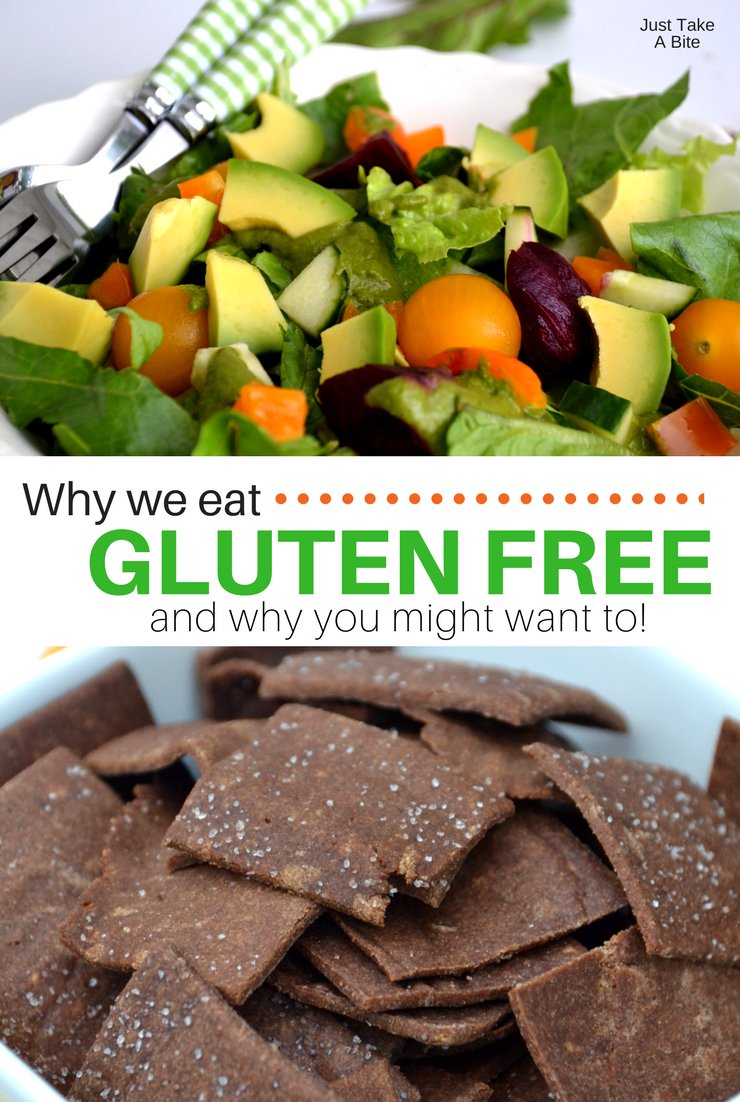 The question I get most often related to our diet and lifestyle is why we eat gluten-free. The answer I give depends on my audience. If it’s someone I barely know I usually just say allergies to avoid a long discussion.
The question I get most often related to our diet and lifestyle is why we eat gluten-free. The answer I give depends on my audience. If it’s someone I barely know I usually just say allergies to avoid a long discussion.
But the real answer goes much deeper. Especially since technically none of us does have a wheat/gluten IgE allergy!
Why Are We Eating Gluten-Free?
It all started in 2010 when I was pregnant with my son and did the GAPS diet (not something I would do again, by the way). At that point I was eating completely grain-free. That was when I first started learning about the potential harm grains can cause to the body.
After coming off of the GAPS diet (very underweight and exhausted…that picture is only one month postpartum while doing GAPS) I switched to sourdough made with rye and wheat. Which I LOVE (and miss!). We ate that for a while. Though I learned pretty quickly that wheat that wasn’t properly prepared did not agree with me.
But it wasn’t until my oldest was close to five years old that we really made the switch to a gluten-free diet. It wasn’t because she was having hives or rashes or another type of allergic reaction.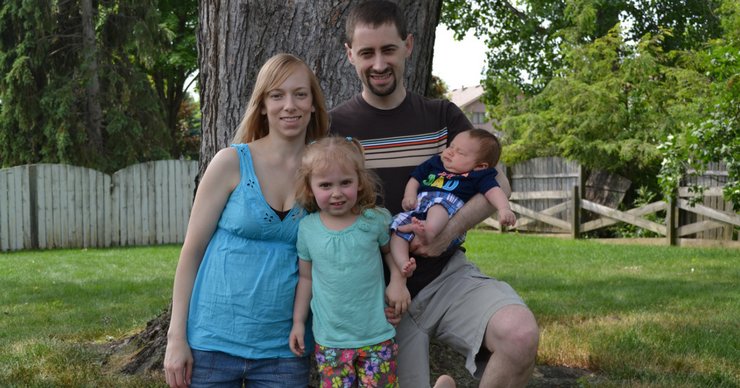
We went gluten-free because of the neurological impact gluten has on her. In other words, it makes her totally crazy.
We struggle enough with her focus and accomplishing simple daily tasks (in spite of her being the smartest kid I’ve ever met). We’ve worked with a speech therapist, occupational therapist, psychologist, functional neurologist and orthodontist to help with reflex integration, focus, oral SPD and mouth breathing.
But the thing that has made the biggest impact on her health is diet. Specifically staying away from gluten.
Does a Gluten-Free Diet Work?
There have been periods where we tried switching back. Sometimes just an exception here or there. Sometimes for longer stretches.
Without fail every time produces the same results. She is non-functional. Sometimes I have to feed her. We can’t expect much from her. It pains me as a mother to see her like this. So even though she is my child with “no food allergies,” she has the strongest reaction to gluten.
How Gluten Impacts Our Family
Around the same time I discovered how gluten was impacting my daughter, I learned just how important a gluten-free diet is for thyroid health. As someone that has dealt with hypothyroidism for many years that is a big deal!
In 2013, while still struggling with infertility, I made the switch to natural desiccated thyroid AND made the choice to be strict gluten-free. Those were two of the best things I ever did for my own health. And they are large reasons why we have our miracle baby #3 (who isn’t a baby anymore) and miracle baby #4 (who I can barely call a baby now)!!
When my oldest son was first tested for food allergies wheat was on the list. So it was a no-brainer to keep him gluten-free. And considering all of my youngest’s struggles with food reactions and trying to heal her gut and whole body from vaccine reactions, I made the choice to keep her gluten-free as well.
I have done a lot of research on eating gluten-free. I’ve gone back and forth on the idea over the years. But in the end we have remained gluten-free. My largest reason has been simply observing how it impacts my family and my desire to keep them healthy.
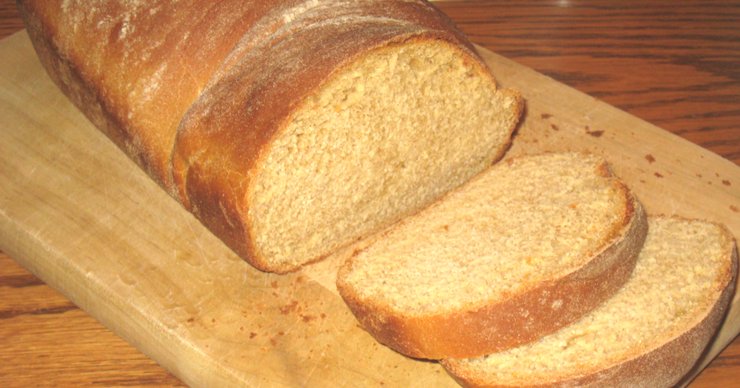 Should Everyone Eat a Gluten-Free Diet?
Should Everyone Eat a Gluten-Free Diet?
Maybe. Maybe not. That is still a debatable topic. But there is a lot of research out there that shows how gluten can damage the gut and lead to a host of health problems. According to Gluten Free Society:
Gluten causes neurochemical changes in the production of neurotransmitters (chemicals that allow the nervous system to communicate). Examples include: serotonin, dopamine, acetylcholine, epinephrine, and histamine. Gluten is also a neurotoxin that has been shown to damage nerve tissue. This is the reason so many with neurological disease (autism, migraine headaches, ADD, bipolar, schizophrenia, neuropathy, epilepsy, etc.) do well on a gluten free diet.
Which makes total sense to me seeing how my daughter responds to it! It impacts the entire nervous system.
Is a Grain-Free Diet Healthy?
You can go a step farther and say that all grains are bad. Diets like primal, paleo, AIP, keto,GAPS, etc. exclude all grains. But I personally don’t think that’s necessary unless you are working on healing an autoimmune condition. And even then it should be temporary.
I’ve been at both ends of the spectrum – sprouting and grinding my own wheat to make homemade baked goods and being completely grain-free. I have found for us that it’s best to strike balance in the middle using gluten-free grains. I don’t feel well when I eat totally grain-free. My body NEEDS some starch in the form of grains (this is a bio-individual thing you have to figure out for yourself – for me starchy veggies don’t work). Kids need plenty of carbohydrates to balance protein and fat and have energy. So I don’t restrict gluten-free grains for my kids.
I recently watched the Broken Brain docu-series. One of the doctors said he believes every single person should eat gluten-free, as it can lead to holes in the digestive tract (a.k.a. leaky gut). The amount of damage it does to each individual varies. The hard part is that the reaction can come hours or days later. So it is very difficult to pinpoint the culprit. And it can manifest is so many ways (think headaches, stomach aches, constipation, fatigue, foggy thinking, dry skin, hair loss, bad breath, poor growth, osteoporosis…the list goes on and on).
The only way to really know if you feel better without gluten is to take it out for at least a month and assess. If you add it back in do your symptoms return?
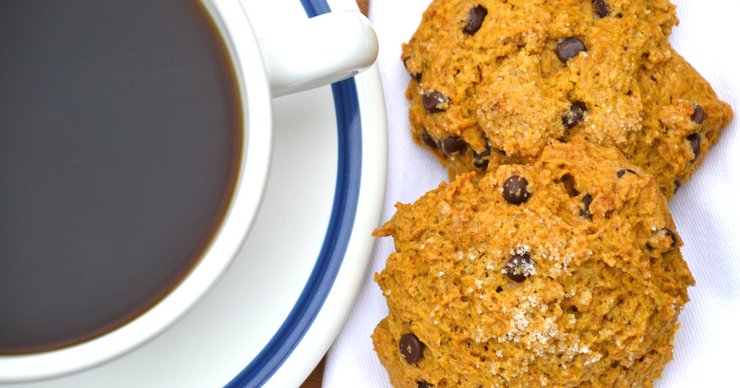 Is Einkorn A Healthy Alternative?
Is Einkorn A Healthy Alternative?
There may be one exception to the rule. I have heard great things about einkorn flour – an ancient variety of wheat. I have friends that react to gluten, but seem to do fine with einkorn. This is largely due to how modern wheat is sprayed and processed.
This is a grain I have not used much personally. I have baked with it a couple times. But not enough to really experiment and see how we all handle it. Getting gluten out of your system completely can take a while. So I’m always hesitant to introduce any, knowing that if it goes poorly we’re starting back at square one.
Maybe some day after more healing (and when mom isn’t nursing and exhausted) I will try sourdough einkorn and see how it goes. Then I can really see if it’s the gluten itself or the modern grains contributing to our health problems.
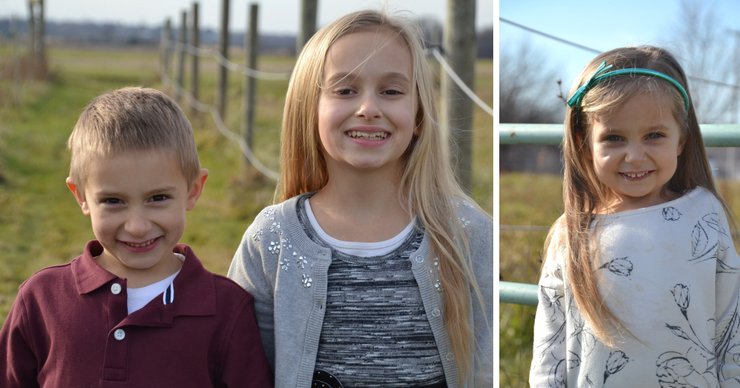 Long-Term Gluten-Free Diet
Long-Term Gluten-Free Diet
We are still working through allergies and eczema for my son. We are still working on neurological issues with my oldest. And my youngest is finally making great progress with eating and growth. I’m not about to rock the boat and introduce something new right now.
A gluten-free diet has made a world of difference for our family’s health, both physically and mentally. It has even helped me heal from years of struggling with infertility, anxiety and OCD. That is why we eat gluten-free. Not because we read a book about it. Not because it worked for someone else. Because we have seen the benefits first hand. It has helped my kids feel better. And it has really helped manage my hypothyroidism.
Once you get started it’s not difficult to cook and bake gluten-free. There are so many alternatives readily available now. Then again it’s not always easy when you are away from home. But it’s worth the effort.
Have You Ever Considered A Gluten Free Diet?
If you have a child that is a really picky eater, has eczema, struggles with ADD/ADHD, has ASD, is emotionally unstable (anxiety, tantrums, etc.) or has any other nagging condition you can’t seem to figure out, you should consider a gluten-free diet. It’s a simple change that doesn’t require doctor visits and doesn’t cost anything. You never know. It could be a life changer!
I’m not going to go as far as to say that everyone should eat gluten-free. I’m not a doctor. But I do think a lot of people could benefit from it.
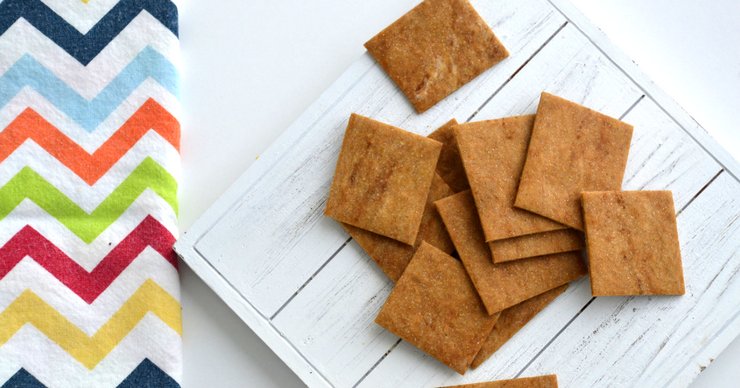 How to Start a Gluten-Free Diet
How to Start a Gluten-Free Diet
When we first started eating gluten-free I took baby steps. I didn’t buy any strange, new foods. I just cooked meals that were naturally gluten-free. I made dishes with rice, potatoes, corn, etc. I just avoided our meals that use wheat for a few weeks.
Once I saw how well it was going I started to venture into gluten-free baking and experimenting with wheat alternatives. If you want to give it a shot I’ve got hundreds of gluten-free recipes on the blog.
Curious what we eat every day? Follow me on Facebook or Instagram where I share most of our meals.
I know the idea of eating gluten-free may sound overwhelming. But it’s not. Once you get started you’ll see just how easy it is. And you might be surprised by the health changes you observe!

I’ve considered GF several times in the past (for myself and my son). When he was young he had a noticeable reaction to wheat, but while the allergy testing showed lots of problem foods, wheat and gluten were not among them. Now that he’s older, he doesn’t have the digestive problems that he had before, but his ADD and poor executive functioning are getting to the point of problematic. My symptoms of brain-fog are similar. But, (and I know this is just an excuse) my kids LOVE wheat. We have pancakes, pasta, and pizza all weekly. I fear the reaction to, “No more Sunday Brunch”.
It’s worth a shot to experiment, Wendy! And you can make all those items gluten free quite easily. Going gf does not mean giving up foods. Just making them a little differently. We use brown rice noodles – can’t tell the difference. I make pizza and pancakes all the time. Remember that gluten free is not the same as grain free.
It is amazing how much gluten can effect people. My grown daughter gets anxiety and eczema when she eats gluten. I get a red chest and neck. Thank goodness people are catching on!
It is crazy, Linda! Glad you figured it out.
Excellent article. Thanks for sharing. I agree.. So many folks are unaware that this could be the key to better health!
Thank you!
I’ve been gluten free for years . I tested myself by doing the elimination diet just because I felt so horrible all of the time and being Italian my whole diet consisted of gluten growing up. Difference it made is like night and day! Wish everyone would listen to me but they have to figure it out in their own time I guess.
Glad you were able to listen to your body and figure out how to feel good! I can tell the difference pretty quickly too.
Do you find that properly prepared grains (like a long fermented sourdough) are problematic? I have been gluten free for years and I’ve generally fed my family that way, but we’ve experimented with sourdough and haven’t noticed any negative changes for anyone when we have it. I sometimes wonder if incorporating properly prepared grains are in general a healthier way to eat than not. Or maybe even sourdough is causing some unseen damage? I don’t know! I go back and forth on this.
That is a tough question! I know I debate about it as well. Everyone is different in what they tolerate. Most of my family tolerates homemade wheat sourdough, even though the rest of our food is gluten-free. It is possible to have long-term effects that you aren’t noticing right now. But it’s possible that you truly are fine with it. My suggestion is to eat it for a while and then take a break for a bit and see if you notice any difference (even small differences). I don’t think everyone needs to eat gluten-free. But it is helpful for many.
I love burgers and sandwiches X_X, what do you guys do in place of those?
There are lots of options for gluten-free buns and bread these days. Or you can make your own. We eat burgers and sandwiches all the time.